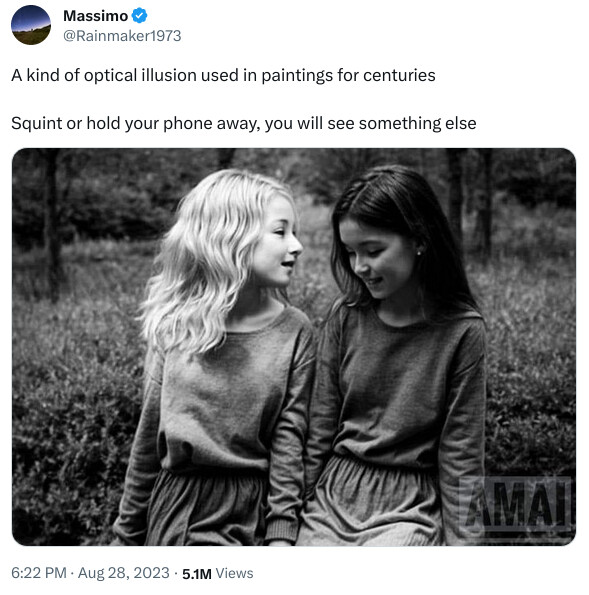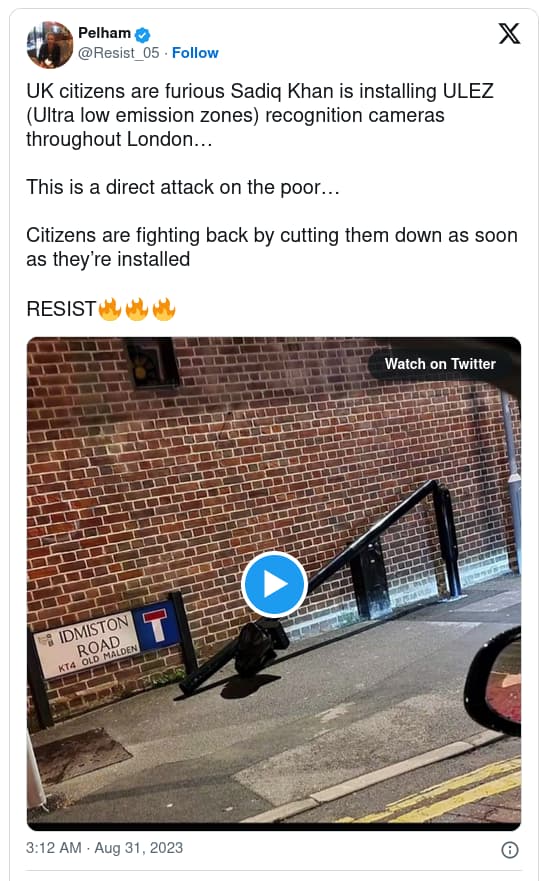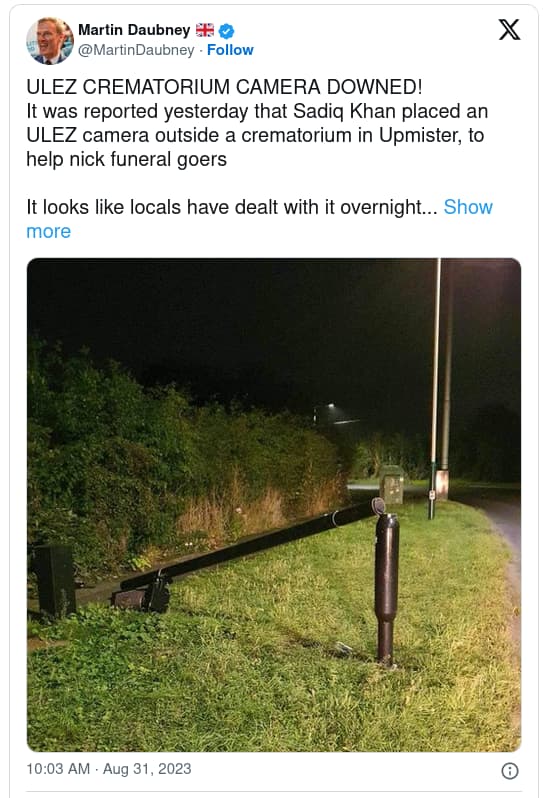Such is the quest for security in Safetyland that parents must even be shielded from adverbs.
Wait’ll they see what’s waiting for the kiddies in the school library.

Such is the quest for security in Safetyland that parents must even be shielded from adverbs.
Wait’ll they see what’s waiting for the kiddies in the school library.

I am reminded of an infamous patent:
This patent has expired on 2020-11-17, praise Bob! Now kiddies are swinging side-to-side all over Safetyland without patent enforcers showing up to collect royalties.
“Special discounts for ten swings or more! Ask about our yearly subscription plan.”
Leftists are modern day puritans. Nothing excites them into action more than the thought of someone having a good time.


(8.5 pixel Gaussian blur filter in GIMP)
Bwahahaha!!! This is what those kids want. Give it to em good and hard.
“This is a four-year-old’s life in the rich, safe DC suburbs. Very, very Safe. Fun? I don’t think so.”
This reminds me of a sign at a “Bark Park” in Houston TX that I saw some years ago. The text was rather similar – except that it was directed at dogs, instructing them on what they should & should not allow their humans to do.
Let’s face it – these kind of signs are not there to help 4 year-olds or dogs be safe. They are there to make it more difficult for evil attorneys to sue the city.
Recently, a close friend told me how much he wanted to be a parent one day. I asked if he’d consider adopting. Suddenly, he became hesitant—pausing before admitting that he’d like to have children who were biologically related. His answer wasn’t unusual; in fact, it was probably my question that was odd. Yet his brief equivocation felt significant, signaling a peripheral awareness that this answer has become complicated.
For most of Western history, it was a given that a parent would want their children to be their direct progeny. A child’s biological provenance was believed to ground the parent-child relationship in a hardwired, irrevocable bond. If anything, it was morally preferable that your child be directly related to you, since this was thought to provide a healthy foundation for growth and self-actualization. The bioethicist J. David Velleman expresses this line of argument when he writes that knowledge of one’s biological parents is a “basic good on which most people rely in pursuit of self-knowledge and identity formation.”
Yet this prioritization of biological inheritance (“biologism,” as some call it) has recently become unsettled. Previously, if you gave birth to a child, it was a simple certainty that they were genetically related to you—the biological fact was inextricably linked to their existence. Over the past few decades, however, practices like gestational surrogacy have shown that this need not be the case. Evolving family structures, advancements in fertilization and embryonic screening technologies, and changing moral sentiments have all contributed to a growing reevaluation of this deceptively simple preference. Once we begin to disentangle what is truly possible from what we simply assumed was necessary, we are forced to look at this “natural” preference with fresh eyes.
What we find is that, when contextualized amongst our other modern ethical norms, this preference can feel downright ancient—a vestigial remnant of a different epoch, a fossil no longer animated by the same moral intuitions that gave it gravity in the past. In fact, many of the arguments that might be made in favor of this prejudice run precisely counter to other changing attitudes toward parenting, family, and the role of biology in culture.
⋮
Perhaps the most extreme form of this argument comes from the anti-natalists, who roughly hold that not only should we adopt when we can, but that it is immoral to bring children into this world. Philosophers like David Benatar have made this case along a number of lines—arguing that in general, “all lives contain more bad than good” (especially given experiential asymmetries that mean that the “worst pains, for instance, are worse than the best pleasures are good”) and that humankind has wrought such damage on the environment that the world would probably be better off without us. The anti-natalists thus conclude that bringing about any new human life is wrong, and insofar as a biologically related child will necessarily be new, that preference is wrong by extension.
It’s a shocking line of thought, but one that has gained a fair amount of mainstream palatability as our outlook on the future devolves. Climate anxiety, for example, is causing some people to ask what kind of world the generations to come will inherit. The consensus: not a very habitable one. Meanwhile, as the US continues to gut its social safety nets, having children is slowly becoming economically infeasible. Many now feel that kids today will be financially worse off than their parents. All of this makes the future a pretty bleak place to bring a child into, and people are readjusting their plans accordingly. While this might not be an argument against the biological preference, the growing anti-natalist sentiment reveals a changing relationship to children that is already intersecting with it. As one 31-year old woman told researchers, “climate change is the sole factor for me in deciding not to have biological children. I don’t want to birth children into a dying world.”
Thank goodness we have Wired magazine to tell us what is moral and immoral. The author, one Leo Kim, lives in New York City, a conurbation so free of all forms of depravity its denizens are entitled to be moral arbiters for the less enlightened. In 2019, the total fertility rate for women living in the New York borough of Manhattan was 1.09, compared to 1.71 for the entire United States. Replacement is considered to be 2.1.
Is there a problem? As someone who is quite concerned about what today’s Wokerati are doing, it is great to see these Karens voluntarily climb out of the gene pool. To the extent there is any genetic component in willful stupidity, they are doing their small part to make the world a better place. And to the extent that willful stupidity is environmentally driven, they are definitely sparing potential offspring from a bad start in life.
Apparently not as bad as the headline suggests and could be very good:
One of Caltech’s alternative paths is taking Khan Academy’s free, online classes and scoring 90% or higher on a certification test. Sal Khan, academy founder, said Caltech’s action is a “huge deal” for equitable access to college. While Caltech is small — only 2,400 students, about 40% of them undergraduates — Khan said he hoped its prestigious reputation would encourage other institutions to examine their admission barriers and find creative solutions to ease them.
What are the other paths and how do they implement them?
This is insane. As a criminal defense lawyer for juvies I have one client who is adopted and has tremendous mental health issues as it relates to her adoptive parents. Her issues stem from her biological mom not wanting her and she has difficulty understanding why her adoptive parents would want her when her biological mom didn’t. This in turn results in her damaging the adoptive parents’ home and otherwise lashing out (she has an Offensive Touching charge. There is a huge psychological impact in feeling abandoned, not wanted, and ultimately unloved with many adopted/foster kids. This is just more WEF anti-human bullshit meant to stop people from having their own children.
Faster please.
Well, let’s HOPE Israel is attempting to harm Iran’s weapons program. Goodness knows, our mopes are actually facilitating it!
We appear to have THE MOST IDIOTIC FOREIGN POLICY imaginable. Nothing we do seems to be in our interest.
Remix News reports, “Hundreds of ULEZ cameras destroyed by vigilante group following wider London roll-out”:


Despite their criminal activity, the vigilantes have received political support, including from a former Conservative Party leader and cabinet minister, Sir Iain Duncan Smith, who insisted he was “happy” for Londoners to fight back because “they are facing an imposition that no one wants and they have been lied to about it.”
“A lot of people in my constituency have been cementing up the cameras or putting plastic bags over them,” he said. “The actions you are seeing show how angry people are at what is being imposed on them. Sadiq Khan has gerrymandered all the information – people have had enough.”
Last November, Khan announced the extension to the scheme, which had previously been reserved for central London, to all London boroughs despite overwhelming opposition to the plan.
The BBC reported that a public consultation on the extension plans, which Khan insisted was a genuine consultation and would factor into his decision, showed 80 percent of people in the affected area opposed the move.
Fourmilab is currently working on the T-shirt.

“Consent” of the governed at work for a change.